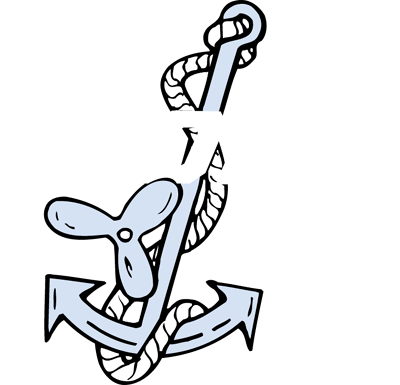Professional mariners are exposed to a number of stressors due to their demanding work environment, such as grueling schedules, separation from family and friends, lack of quality sleep, and time pressures. However, over the past year, the COVID-19 pandemic and the uncertainties associated with it (e.g., struggling economy, health of vulnerable loved ones, vaccinations, remote work/school for family members) have given rise to unprecedented levels of stress. This can be particularly troublesome for professional mariners since the consequences of stress can be disastrous.
In addition to taking a toll on your physical health, stress hampers your ability to remember things you already know, to process new information you are learning, and to apply both to tasks that require mental concentration. Stress impacts decision making, your ability to communicate with others effectively, and your overall productivity. When feeling stress, you are often focused on what has caused you to feel the way you do, rather than on your responsibilities. This means you are more prone to make risky moves and careless mistakes, experience impaired observations and reaction times, and put lives, company assets, the environment, as well as your USCG license and career, at risk.
While you may not be able to avoid all of the stressors inherent in a maritime profession, there are ways to help manage stress and improve safety for everyone:
Connect with loved ones: Sharing and talking with family and friends can be a great stress buster. With many companies offering crew internet access aboard their vessels these days, it’s easier than ever for mariners to stay connected from afar.
Connect with others onboard: Talk with other mariners close to you about your concerns and how these worries are affecting you. As your fellow seafarers are confronted by many of the same issues you are experiencing, you may find that they share your feelings. Talking can release built-up tension, and may even help you sort through your problems and identify solutions.
Think positively: It’s easy to get wrapped up in everything that’s causing you stress, but it’s important to balance out the bad by proactively focusing on the good and the things you can manage in your life. Consider writing things down. Doing so helps to get your concerns and fears out of your head, and into the open. And, try to keep a sense of humor. Laughter goes a long way in reducing stress.
Make time to unwind: Use part of your off-duty time doing something that you enjoy, such as reading, listening to music, or doing crossword puzzles. It doesn’t have to be a lot of time…even 20-30 minutes will do wonders to relieve stress.
Eat healthy: A poor diet can worsen stress. Over time, it can also contribute to the risk of developing certain health conditions such as cardiovascular disease. Healthier food choices can help counter the impact of stress by shoring up the immune system and lowering blood pressure.
Prioritize exercise: While exercising on board is not always an easy task, participating in a physical activity, in any form, can act as a stress reducer by increasing endorphins, improving your mood and allowing you to be distracted from whatever is on your mind. Even a brisk walk or jog around the ship is better than doing nothing at all.
Meditate: Meditation is a simple technique that, if practiced for as few as 10 minutes each day, can help you control stress, decrease anxiety, improve cardiovascular health, and achieve a greater capacity for relaxation.
Practice deep breathing: Deep breathing—slow breaths in through the nose counting to four and exhaling for 4 counts—can make a big difference in lessening the body’s stress response, reducing tension and calming your brain. Moreover, deep breathing is a tool that requires no resources and can even be performed while working.
Cut out things that add to your stress: Sometimes the best way to experience more peace is to get rid of the things that are adding to your stress. Limiting your exposure to COVID-19 news, ignoring the negativity of others on board, or reducing caffeine intake are just a few things you can do to help eliminate stress.
Since 1935, MOPS has protected the licenses and livelihoods of more than 80,000 deck and engineering officers, state and federal pilots and certified tankermen.
We cover USCG licensed officers operating aboard vessels of any size in every sector of the maritime industry. If you want a quote, give us a ring at 800-782-8902, ext. 3608 or 3302. Or fill out our online form and we'll email you a quote.

